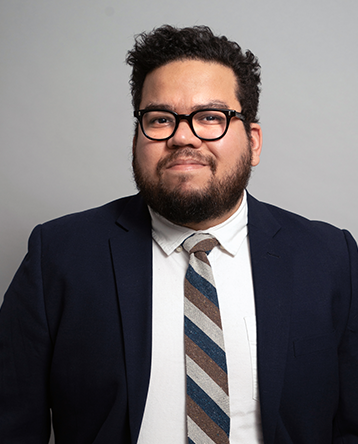Gabe Gomes
Assistant Professor, Chemical Engineering, Chemistry
Courtesy Appointment, Machine Learning
Assistant Professor, Chemical Engineering, Chemistry
Courtesy Appointment, Machine Learning

Gabe Gomes joined Carnegie Mellon University in 2022 in the Departments of Chemistry and Chemical Engineering. The Gomes Group research program focuses on the development of new chemical reactions, catalysts, and materials using and developing state-of-the-art machine learning and automated synthesis. Gomes’ research rests at the interface between machine learning and organic chemistry, where he aims to develop new platforms for autonomous reaction discovery, with emphasis on catalysis. He was previously a postdoctoral research fellow at the University of Toronto in the Matter Lab, led by Professor Alán Aspuru-Guzik. While there, Gomes received a Banting Postdoctoral Fellowship to pursue his work titled “Designing Catalysts with Artificial Intelligence.”
Under the guidance of Professor Igor V. Alabugin, Gomes earned his Ph.D. in Fall 2018 from Florida State University, where he also was awarded the LASER Fellowship in 2014 and the 2016-2017 IBM Ph.D. Scholarship. At FSU, his research was centered on the relationship between molecular structure and reactivity, focusing on the development and applications of stereoelectronic effects. His dissertation was entitled “Controlling Chemical Reactivity with Stereoelectronic Effects.” For his work at FSU, in 2018, Gomes was: awarded the FSU’s Graduate Student Research and Creativity Award for his work in Computational Chemistry; awarded the ACS COMP Chemical Computing Group Excellence Award for his work on the mechanism of the Gold-Catalyzed Bergman Cyclization; selected for the CAS SciFinder Future Leaders Program; selected for the ACS ORGN Graduate Research Symposium.
Gomes received his B.Sc. in Chemistry from Federal University of Rio de Janeiro, Brazil under supervision of Professor Pierre Mothè Esteves, in 2013. His research at that university was focused on theoretical studies of electrophilic aromatic nitration via single electron transfer and a final project on the development of methane clathrates inhibitors. He also spent a year at the University of Lisbon, Portugal in an academic exchange researching reduced graphene oxides, with Professor Maria José Lourenço.
2018 Ph.D. Chemistry, Florida State University
2013 BS Chemistry, Federal University of Rio de Janeiro
Chemical Engineering
Gabe Gomes and other computational chemistry and computer science experts in the National Science Foundation Center for Computer Assisted Synthesis are collaborating to speed up materials discovery.
Chemical Engineering
The predictive model recommends the best-performing enzyme to catalyze a chemical reaction.
CMU Engineering
In a Q&A, Gabe Gomes discusses the potential to combine human creativity with machine capability, transforming chemical research.
Chemical Engineering
A new model from Gabe Gomes improves molecular representations and enables rapid generation of new quantum-informed graphs. It may help chemists unlock previously inaccessible chemical insight.
Chemical & Engineering News
An app created by ChemE’s Gabe Gomes that predicts the compatibility of biocatalysts with organic molecules was featured in Chemical & Engineering News.
Nature
ChemE's Gabe Gomes was quoted in Nature about large language models like ChatGPT.
ChemE’s Gabe Gomes contributed to the red teaming efforts for Amazon’s new family of foundation models, called Nova. The Gomes Group tested the models’ capabilities in chemistry and chemical compounds.
Chemistry World
ChemE's Gabe Gomes was quoted in Chemistry World about using large language models in chemistry.
The New Yorker
ChemE’s Gabe Gomes’ work with large language model Coscientist was mentioned in a The New Yorker story about how scientists discover and develop new medicines to combat antibiotic-resistant strains of bacteria, along with how these scientists integrate artificial intelligence (AI) into this process.
Chemical Engineering
Gabe Gomes is a member of two multidisciplinary teams awarded funding for high-risk, high-reward projects.
Chemical & Engineering News
Research by ChemE’s Gabe Gomes was referenced in a Chemical & Engineering News article about large language models being applied to chemistry and materials research. Gomes’ research team debuted Coscientist, a model that can contribute to the experiment process, this past December.
Chemical Engineering
In the search for new materials, Ph.D. student Robert MacKnight is motivated by the potential of AI to accelerate the daily tasks of research and, ultimately, the process of molecular discovery.